1. Capra, F. (1999). Ecoliteracy: The Challenge for Education in the Next Century. The Center for Ecoliteracy. http://www.scribd.com/doc/17354372/Capra-Fritjof-Ecoliteracy-
1.1. MAIN POINTS FROM THE READING
1.1.1. Build/nurture sustainable communites
1.1.2. Life should not interfere with nature
1.1.3. Be ecologically literate
1.1.4. Curriculum is needed that demonstrates interconnectedness and should begin at primary
1.1.5. School reform for an integrated curriculum
1.1.5.1. School gardens
1.1.5.2. Multi-levels of involvement Teachers Administration Students Parents
1.1.6. 21st Century Learning -"school becomes a true learning community" (p.9)
1.1.6.1. I have started a Facebook page and by doing so have developed a community
1.2. COMPONENTS OF ECOLITERACY • understanding the principles of ecology, experiencing them innature, and thereby acquiring a sense of place; • incorporating the insights from the new understanding of learning,which emphasizes the child’s search for patterns and meaning; • implementing the principles of ecology to nurture the learningcommunity, facilitating emergence, and sharing leadership; • integrating the curriculum through project-based learning. (p.10)
2. WALS, ARJEN E.J. (2011). Learning Our Way to Sustainability, Journal of Education for Sustainable Development 5 (2 ), 177–186.
2.1. MAIN POINTS/QUESTIONS RAISED FROM THE READING
2.2. EE=environmental education ESD=education for sustainable development
2.3. Should this type of education "change behaviour or focus on capacity building and critical thinking" (p.1)
2.4. What should we Change?
2.5. How should we foster change?
2.5.1. ~must be careful ~must be emancipatory in nature ~must foster autonomous thinking
2.6. "Good Education" enables critical thinkers
2.6.1. Critical Thinkers are developed through: ~transdisciplinary learning ~transformative learning ~anticipatory learning ~collaborative learning ~social learning (p.180)
2.7. Learning takes place not only in classrooms, boardrooms, environmental education centres or regional districts but "synergy between all disciplines (courses/classes/subjects) generations, cultures, institutions and sectors
2.8. Through sustainability education, learning becomes GLOBAL
3. Meyers, Ronald, B. (2006). Environmental learning: reflections on practice, research and theory, Environmental Education Research, 12(3–4), 459–470.
3.1. MAIN POINTS FROM THE READING
3.1.1. 3 Perspectives
3.1.1.1. Theory
3.1.1.1.1. How should we inform our practice ~Dewey (Mr. hands-on believed in both theory and practice ~'post' research
3.1.1.2. Research
3.1.1.2.1. How to identify what is important to learn about environmental learning ~*we need to develop better methods of comparing and interpreting research (p.464) ~use INTERPRETIVE INQUIRY
3.1.1.3. Practice
3.1.1.3.1. Recommendations about content and teaching methods are important for environmental learning
3.2. The problem with environmental learning is that it is difficult to conceptualize,theorize and communicate findings
3.3. Meyers outlines a working "epistemology" to: 1.guide work 2.increase research and inquiry into environmental learning
3.4. Environmental learning= "study concerning the processes whereby learners learn" (p.460)
3.5. Dewey...we must look at the perspective from both teacher and learner. It is a DOUBLE SIDED COIN
4. Vaines
4.1. Human ecology encapsulates harmony and connectedness
4.2. If we reflect on everyday occurrences (eating/clothing/caring), things we do as a family, become sacred
4.3. *The day to day becomes ingrained/important yet not taken for granted, they become meaningful and sacred." (Unit 1 Week 4)
4.4. Vaines (1999) "If we are unable or unwilling to move out of our old stories where food is seen as a thing, a commodity to be manipulated, and eating as an industrial act, then we will experience life that has lost its savor"(p.23).
5. Smith, M.G (2004). Home Economics Now: Transformative Practice, Ecology, and Everyday Life. Chapter 1, Cultivating Ecological Consciousness in Young People through Intergenerational Learning (21-38)
5.1. MAIN POINTS FROM THE CHAPTER
5.1.1. Reflective practice journey
5.1.1.1. Ecological intergenerational learning project
5.1.1.2. Journey becomes a calling to "shape new stories about nurturing webs of life in the world, our home." (p.21)
5.1.1.3. Using the UBC Endowment Land farm: students, teachers and community elders came together to integrate a variety of school subjects (p.22)
5.1.2. Vaines (1997) the reflective practice journey, practitioners are actively choosing to participate and be in cooperative, caring, and creative relations with others (p.23).
5.1.2.1. Research project took place between January and June 2003
5.1.3. Vaines (1997) we can derive new stories about nurturing webs of life from reflecting on our lives together (p.25).
5.1.3.1. Participants stories were developed after/through conversation
5.1.4. Vaines (1997) reflective practitioners are turned to the needs and choices of their students, listening carefully and taking cues from them as to what learning will be of most assistance (p.35).
5.1.4.1. Action research was used and by listening to the voices of the participants plans were established for year two of the project (p.35).
5.1.5. Vaines' Spheres of Influence Map (1996) and Map of Professional Practice (1997) were used in guiding the analysis and reflections of the project (p.37).

